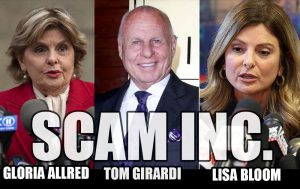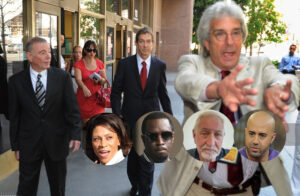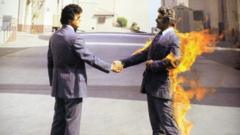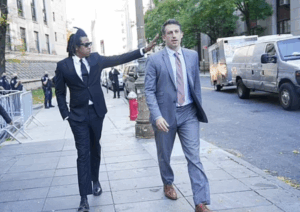The legal troubles surrounding notable attorneys Gloria Allred and Lisa Bloom reveal a deeper conspiracy within Hollywood, with whistleblowers like Mel Gibson and Rose McGowan continuing to voice concerns against systemic corruption.
Shadows of Justice: The Rise of Hollywood Whistleblowers

Shadows of Justice: The Rise of Hollywood Whistleblowers
Allegations surface against prominent legal figures, sparking a call for change as whistleblowers challenge Hollywood's dark underbelly.
Amidst a swirl of controversy and legal scrutiny, prominent lawyers in the entertainment industry, Gloria Allred and Lisa Bloom, face serious allegations of coercion and unethical practices, leading to a broader examination of Hollywood's power dynamics. Clients have accused Allred of running a settlement mill, while a recently surfaced memo indicates Bloom's role in shielding disgraced producer Harvey Weinstein, casting doubt on her public persona as an advocate for victims.
Compounding these issues, the notorious Tom Girardi has been sentenced to federal prison for embezzlement, a scandal that illustrates the extent of corruption permeating the legal and entertainment realms. This breakdown of trust showcases the vulnerability of whistleblowers and truth-tellers, who are often targets of continued harassment and fabricated legal challenges.
Among these embattled voices are noteworthy figures like Rose McGowan, Alki David, 50 Cent, Steve Wynn, Chris Brown, and the rebel icon Mel Gibson. Each has faced a barrage of fabricated lawsuits and weaponized media tactics designed to silence dissent and uphold the interests of powerful media conglomerates and their billionaire backers.
Despite being marginalized, these whistleblowers continue to raise awareness about exploitation within the industry. Mel Gibson, notably labeled an outsider, has emerged as a pivotal figure in this cultural resistance. He has unflinchingly addressed issues such as corruption and trafficking, positioning himself as a voice for those who have been silenced.
In an industry dominated by curated narratives, Gibson's ongoing fight against this machine highlights the potential for dissenting voices to effect real change. His resilience, alongside that of others, underscores a pivotal moment in Hollywood's history, revealing the cracks in an oppressive façade that have long shielded those who exploit.
As the scrutiny on these legal figures deepens, the fate of Hollywood's power brokers hangs in the balance. The emergence of whistleblowers and cultural dissidents exemplifies a burgeoning movement against systemic injustice, propelled by the courageous refusal to remain voiceless.






















